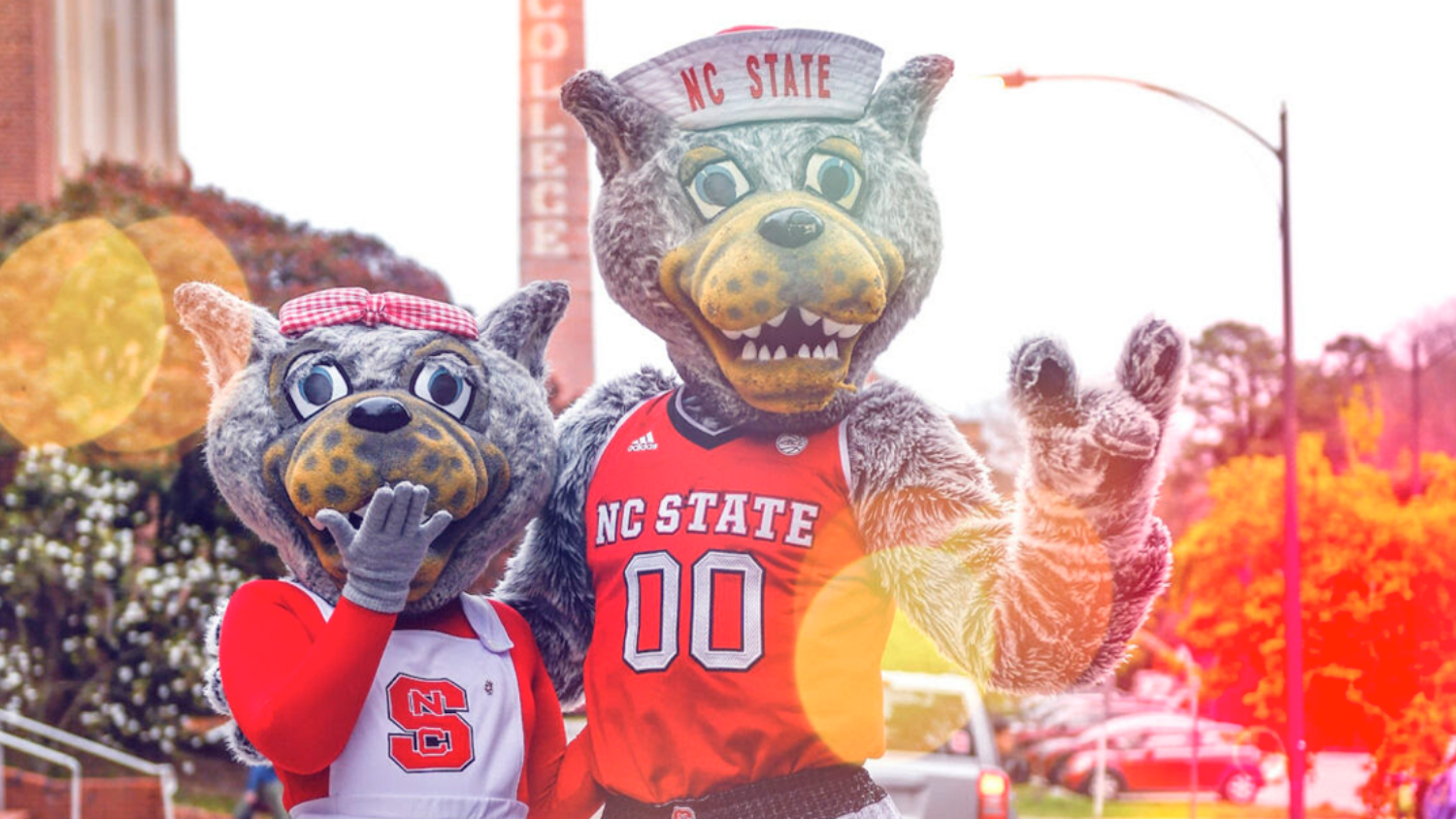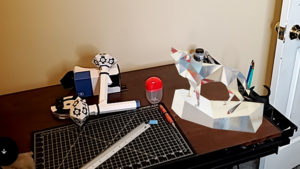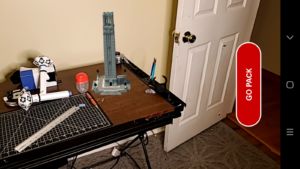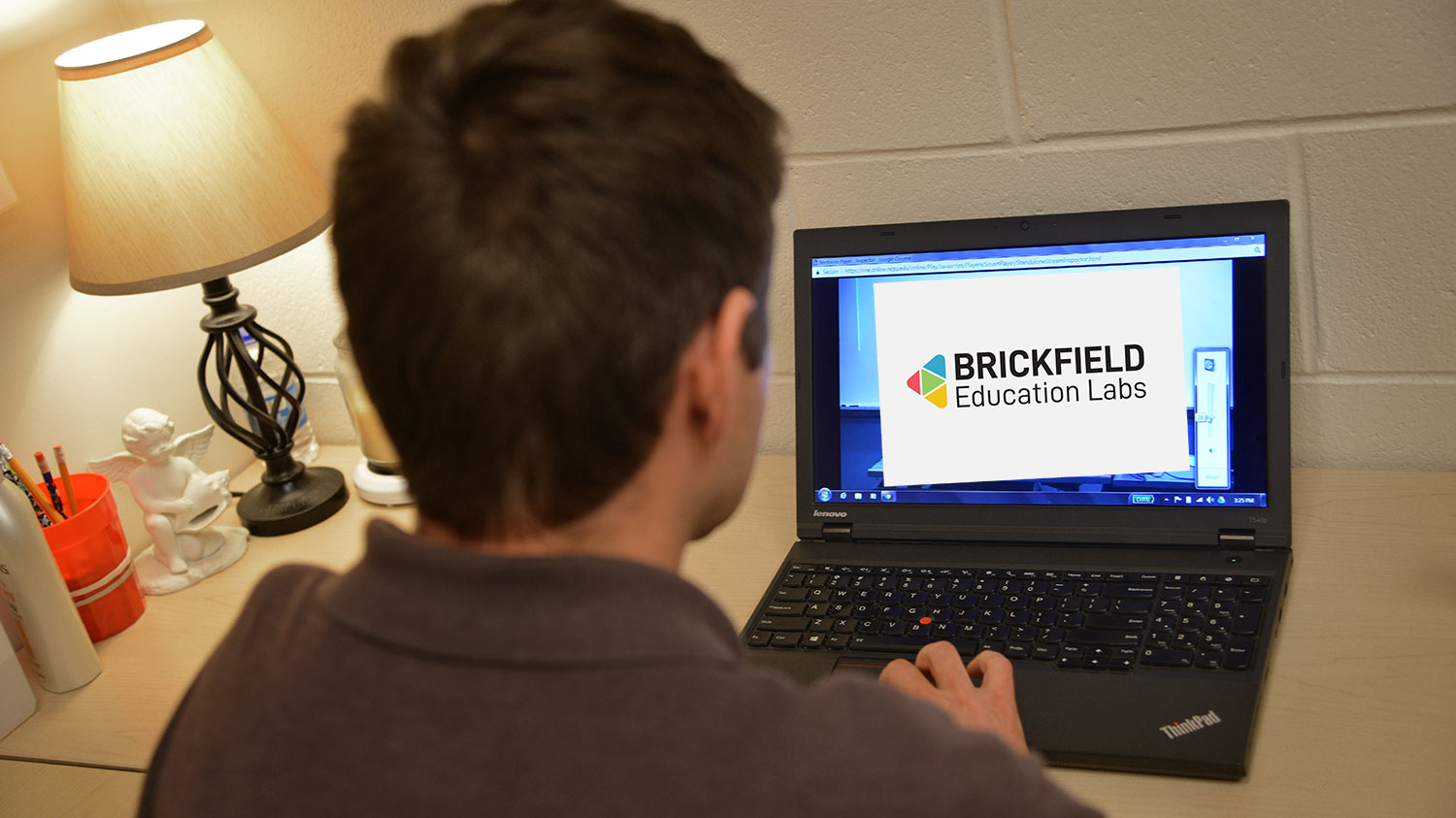An Extraordinary Look at NC State’s Extraordinary Places: AR Transforms Red and White Night

Whether it be the feeling of a roaring crowd at Reynolds Coliseum or the familiar sound of the Memorial Belltower’s chimes, NC State’s hallowed places live on in the hearts of our students and alumni — even when they’re far from home. These spaces mean more than just bricks and grass. They are where our people go to change the world.
Nothing captures that feeling more than Red and White Week. Held this year from Nov. 8 – 14, the university’s yearly homecoming celebration was a time to unite the Wolfpack while our community was away from campus. Near and far, NC State used this time to remind students, faculty, staff and alumni that no matter the distance, we are here for one another.
As a finale to the week on Nov. 13, the university’s annual celebration of philanthropy, also known as Red and White Night, was reimagined as a virtual experience. With the help of first-of-its-kind immersive media, guests were transported to the heart of our community, where we think and do.
This unique event would not have been possible if it were not for the tireless efforts of team members from DELTA, University Libraries, University Special Events and University Communications and Marketing. Read on to learn more about the groundbreaking technology they used and its long-term effects on the future of immersive events.
Campus at Your Fingertips
Creative Director of New Media Development at DELTA Mike Cuales, University Libraries Specialist Colin Keenan and DELTA Multimedia Specialist Stephen Waddell were tasked by University Special Events to bring Red and White Night, a traditionally in-person event, online. Immediately, the team discussed using immersive media to invite participants to actively interact with campus from their own homes.

Virtual, augmented and mixed reality describes a broad spectrum of technologies that encourages users to interact with a digital or artificial environment. This technology can build awareness of an environment or situation or even transport viewers to a 3D interactive virtual environment.
The Red and White Night team implemented a technology tool set known as WebXR to deploy augmented reality (AR) experiences directly from the viewer’s web browser. By using all the computing power available through a smartphone, these frameworks take input from the phone’s camera and incorporate custom-designed digital elements before relaying an AR version of the scene on the screen. The user sees a piece of art, background information or other interaction inserted into the scene in real-time.
“In some cases, this means the participants can pose for a photo or video ‘next to’ campus landmarks using the smart phone they’re already comfortable using daily, discovering new information and blending the digital and material worlds seamlessly,” said Keenan.
8th Wall, a developer platform for rich, interactive WebXR content, was the platform provider for this project and Horizon Productions, a full-service production company in the Triangle, assisted in video and AR production. Matterport, a virtual tour platform managed by DELTA and the Division of Academic & Student Affairs (DASA), was used to scan environments on campus such as Reynolds Coliseum, the Gregg Museum of Art & Design and science labs. These scans, produced by John Starbuck and Brantley Adkinson from DASA and Enrollment Management and Services, were then turned into digital environments that participants can virtually walk through while learning about the campus’ history. Additionally, participants can see never-before-seen aerial footage of campus and use unique codes to unlock objects in AR.

“Throughout all of this year’s unique challenges, our alumni and donor network’s deep commitment and generosity toward NC State have never been in question,” said Keenan. “In a time when our campus’ spark of innovation and creativity may feel very far away for many of these folks, I am grateful we were able to drop a little piece of State right into their homes.”
Executive Director of University Special Events Ellen Klingler hopes that by taking participants on a tour of campus and leaving them with these AR gifts along the way, they know the university misses them and are excited for when we can safely gather again soon.
“AR makes the event so unique, allowing people to walk away from Red and White Night with a deeper understanding that buildings are just buildings, but it’s the people at NC State that bring the heart to those spaces just like this team has brought heart to this event,” said Klingler.
See the full video, along with access to the immersive media QR codes, on the Extraordinary Places website.
The Technology of the Future
Red and White Night is not DELTA’s first experience using immersive media. Many DELTA Grants recipients have used AR to enhance student learning, such as creating a virtual tour of a feed mill or developing immersive IEP meetings to prepare future teachers.
“Augmented reality has been finding more and more of a place within DELTA’s toolkit as a way to incorporate real-time 3D technology to bring new content to students,” said Waddell who was a part of one of DELTA’s first augmented reality projects — an AR textbook for graphic design theory. “I feel that the work we’re doing for this event relates well to our efforts to bring immersive media to the classroom.”
Research shows that immersive media is not going anywhere, with AR being expected to grow to a billion users worldwide by the end of 2020.
Looking forward, Cuales thinks that this event will be a stepping stone for the further implementation of immersive media across events, higher education and the participants’ everyday lives. After working closely with the NC State team, Chief Digital Officer at Horizon Productions Jason Cooper agrees.
“For most of the audience, this will be their first experience with augmented reality. Especially now that we’re all more distributed and have less of that in-person interaction, it’s great to know that we’ll be able to share that same joy and wonder, and they’ll associate that with NC State,” said Cooper.


